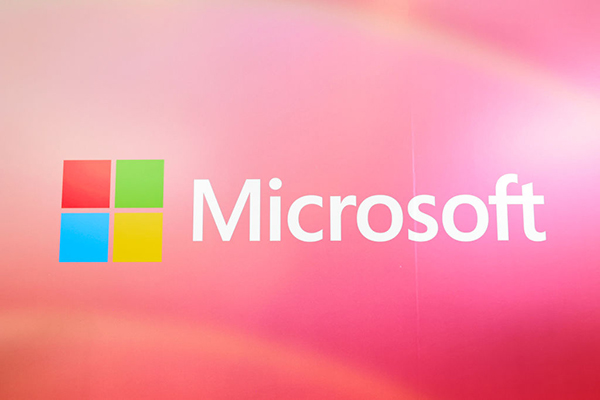Here’s where professional investors are piling in
Bank of America’s closely watched fund manager survey found investor sentiment the most bullish since February.
16th July 2025 13:51

Allocations to tech stocks have jumped at their fastest rate in 16 years after professional investors unwound their fearful positions of just three months earlier.
Bank of America’s closely watched fund manager survey found investor sentiment the most bullish since February amid the biggest surge in profit optimism in five years.
- Invest with ii: Top US Stocks | US Earnings Season | Interactive investor Offers
That’s in stark contrast to April’s report, when gold replaced the Magnificent Seven as the most crowded trade and US stock allocations saw their largest ever two-month drop.
Cash levels were 4.8% of portfolios in April but have since dropped back to 3.9% as investors have taken a more relaxed stance on the impact of President Trump’s tariffs.
Global recession expectations are down for the third consecutive month in July, with a net 59% saying that one was unlikely in the next 12 months. This represents a big swing from the net 42% who were braced for a downturn in April.
As the US earnings season gets into its stride, 42% of respondents expect the figures for the June quarter to beat consensus, while another 30% see an in-line performance.
- The big, not-entirely-beautiful impact of the new US tax and spending law
- What I’d do with Netflix and Tesla stock now
Their optimism is fuelled by artificial intelligence (AI) as 42% believe it is already increasing productivity.
On the exposure to global tech stocks, survey investors increased their allocation from a net 1% underweight last month to a net 14% overweight and the highest level since January.
In the three months since April, global investors have raised their allocation to the tech sector by the largest amount since March 2009.
That’s reflected in the increased crowding around long positions in the Magnificent Seven group of mega-cap stocks of Tesla Inc (NASDAQ:TSLA), NVIDIA Corp (NASDAQ:NVDA), Apple Inc (NASDAQ:AAPL), Amazon.com Inc (NASDAQ:AMZN), Alphabet Inc Class A (NASDAQ:GOOGL), Microsoft Corp (NASDAQ:MSFT) and Meta Platforms Inc Class A (NASDAQ:META).
Long gold is now down as the third-most popular trade, with short positions on the US dollar the most crowded overall for the first time in the survey’s history.
The 20% overweight position on the euro is also the highest since January 2005, having jumped by the most on record from a net 18% underweight in January.
Exposure to eurozone equities is up to a four-year high, with investors also overweight emerging markets and bank equities.
- Producing in Europe for Europe: why reindustrialisation is the next big real estate play
- A great prospect for those seeking to buy and hold
The survey adds that a trade war triggering a global recession is still viewed as the number one “tail risk”, according to 38% of investors, but this is down from 47% in June.
Inflation preventing Federal Reserve rate cuts is the second biggest “tail risk” at 20%, followed by 14% who fear the US dollar slumping on capital flight.
As cash balances are now below 4%, Bank of American said this level triggers a “sell” signal. A figure above 5% indicates that investors are too fearful and assets are likely cheap.
The bank points out that the median four-week S&P 500 index loss following 17 “sell” signals since 2011 has been 2%.
The bank said that sentiment appeared to be getting “toppy”, but with equity overweight positions not yet extreme, it said investors are more likely to stick to a “summer of hedging and rotation rather than big shorts and retreat”.
These articles are provided for information purposes only. Occasionally, an opinion about whether to buy or sell a specific investment may be provided by third parties. The content is not intended to be a personal recommendation to buy or sell any financial instrument or product, or to adopt any investment strategy as it is not provided based on an assessment of your investing knowledge and experience, your financial situation or your investment objectives. The value of your investments, and the income derived from them, may go down as well as up. You may not get back all the money that you invest. The investments referred to in this article may not be suitable for all investors, and if in doubt, an investor should seek advice from a qualified investment adviser.
Full performance can be found on the company or index summary page on the interactive investor website. Simply click on the company's or index name highlighted in the article.
Editor's Picks